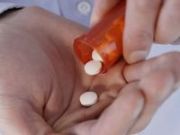Article
Is There Any Advantage to Treating Patients with Hepatitis C for Longer than 12 Weeks with Combination Sofosbuvir/Ledipasvir?
Author(s):
Results from the phase III ION-2 study show a 24-week regimen of sofosbuvir/ledipasvir does not produce significantly better cure rates than a 12-week regimen in treatment-experienced patients.

Although studies have shown that treatment with once-daily fixed-dose sofosbuvir/ledipasvir combination produces very favourable sustained virologic response rates at 12 weeks (SVR12) in treatment-experienced patients with hepatitis C who did not achieve a cure with prior interferon-based therapy, researchers in the ION-2 study wanted to see whether extending treatment to 24 weeks produced any additional significant benefit.
Based on study results, Nezam Afdhal, MD, director of hepatology at Beth Israel Deaconess Medical Center, told the audience Saturday during a general session of the 2014 EASL International Liver Conference in London, UK, that “there is no advantage to treating with sofosbuvir/ledipasvir for more than 12-weeks.”
“Many of our patients with HCV-G1 have failed to respond to up 5 standard-of-care treatments with pegylated interferon and ribavirin,” said Afdhal. “There is no approved interferon-ribavirin free treatment option that is simple, safe, and effective in HCV-G1.” He noted that ledipasvir and sofosbuvir (with or without ribavirin) have been studied in small phase 3 studies such as the ELECTRON and LONESTAR studies of treatment-experienced HCV patients both with and without cirrhosis.
The Phase 3 ION-2 study was designed to determine whether the combination of the NS5A inhibitor ledipasvir (formerly GS-5885) plus the nucleotide polymerase inhibitor sofosbuvir (formerly GS-7977) administered for 12-weeks is effective in HCV-G1 treatment-experienced patients, and also explore whether a longer duration of treatment up to 24 weeks (with or without ribavirin) is required to achieve high SVR rates.
Ledipasvir is administered as a 90 mg once-daily dose and has picomolar potency against HVC GT1a and GT1b. Sofosbuvir is administered orally as a once-daily 400 mg tablet and has potent antiviral activity against HCV G1-6 and a high barrier to resistance. Ledipasvir plus sofosbuvir can also be administered as a once-daily, fixed-dose combination tablet (90 mg/400 mg).
The ION-2 study had two main treatment arms: one in which patients received treatment with 12 weeks sofosbuvir plus ledipasvir, and one in which patients were treated for 24 weeks. Each treatment arm included a sub-group of patients who also received treatment with ribavirin in addition to the combination drug.
A total of 440 patients were randomised (1:1:1:1) across the 4 arms. HVC-G1 patients entered into the trial had failed at 5 IFN-based therapies, including regimens containing NS3/NS4a protease inhibitors. The inclusion criteria were broad and included 20% of patients with cirrhosis. The primary efficacy end point was SVR12; safety was also a major endpoint.
Afdhal said, “The results of the ION-2 study show that treatment with ledipasvir plus sofosbuvir, with or without ribavirin, for 12-weeks resulted in SVR12 rates of 94% to 96% in treatment-experienced HCV-G1 patients. Adding ribavirin and/or extending treatment for up to 24 weeks did not significantly increase SVR12 rates.”
Subgroup analysis based on factors traditionally associated with treatment failures in interferon-based therapies had no effect on efficacy in successfully treated patients. Subgroup analysis of the treatment groups based on prior failed treatments showed 93% response in all arms of the treatment. There was no significant difference in SVR rates between cirrhosis patients (20% in each arm) treated for 12 weeks versus 24 weeks. “The presence of baseline NS5A mutations had minimal effect on SVR and adding ribavirin did not alter SVR rates or prevent relapse,” said Afdhal.
There was one instance of non-adherence during the trial. Eleven patients relapsed during the study, 7 patients from the ledipasvir plus sofosbuvir 12-week arm and 4 from the ledipasvir plus sofosbuvir with ribavirin treatment arm. All 11 patients had detectable NS5A antibodies at the time of biological failure, but none had S282 mutations (the S282 genetic mutation to HCV NS3 protease inhibitors is associated with treatment resistance). Seven of the 11 patients who relapsed had cirrhosis. No relapses occurred in the 24-week treatment arm, only 1 patient was lost to follow-up, and there were no discontinuations.
“The combination of ledipasvir plus sofosbuvir was both safe and well-tolerated, and the majority of adverse effects and laboratory abnormalities were associated with adding ribavirin to the ledipasvir/sofosbuvir combination,” said Afdhal.
The results also show that longer treatment duration may result in more Grade 3 and 4 adverse effects. Adverse effects such as fatigue, rash, and irritability were more frequent in patients on ribavirin, as was the case for laboratory abnormalities. As is expected, haemoglobin levels of less than 10 mg/dl were seen in the ribavirin group and not in the ribavirin-free group. There were no deaths in the study.
Responding to a question about whether there was any benefit for extended treatment in HCV-G1 treatment-experienced patients with cirrhosis, Afdhal said there was none. “You would have to overtreat 9 out every 10 patients to get a benefit from a 24-week ledipasvir/sofosbuvir regimen with or without ribavirin. The benefit simply does not make fiscal or clinical sense, because there is the risk of more side-effects with this treatment approach. So I think that overall, treating for 12 weeks, with a less than 4% relapse rate is the most reasonable approach.”





